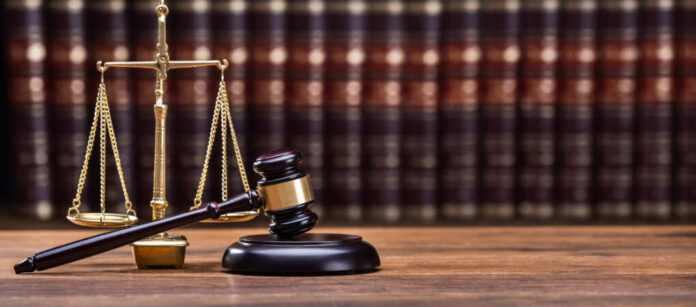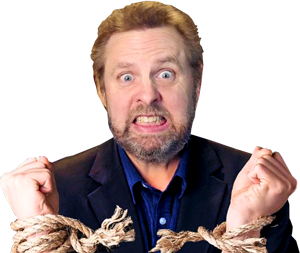
We are sadly seeing utter lawlessness and chaos all around us today. We also see the left advocating for many of the issues that cause this lawless destruction as they support abortion, rioting, looting, and trafficking at the border. As we analyze the lawlessness of the left, we first need to form clear and concise definitions, something the left is incapable of as the LGBT community is constantly contradicting itself in definitions. We need to consider the question ‘What is law?’ to be able to form a clear definition of lawfulness and lawlessness.
Biblically, the law is rooted in our Judeo-Christian heritage. Law, in the biblical sense, brings about a personal and social order that calls on all of us to trust in the promises and provisions of God. Biblical law is not just arbitrary commands, biblical law is a call in some way to trust in the promises and provisions of God. We don’t steal because we trust God’s going to provide for us. We don’t commit adultery because we trust in God’s plan for our highest happiness and in families he defines, we have no other gods before us because we trust that the true and living God is going to provide for all of our needs. That’s the Jewish conception of law that is then ultimately Christian outworking fulfilled in Christ, who is the end of the law.
All trust in God is found in and through and expressed ultimately in Christ. That is the law in its Biblical sense. The law in its outworking of that in Western civilization or Byzantium is trying to enact biblical law in their cultural instantiation. Those become extensions, ultimately, of that, that call to trust in God’s provisions. Laws are, ideally, obligations and responsibilities that we have that transcend, and therefore can temper our inclinations. A promise binds one to an obligation, and because failing to fulfill obligations is universally denounced and derided as immoral, obligations temper people’s inclinations. Wants and needs are subjected to this larger social reality.
Laws are supposed to bind us and obligate us to certain behaviors that extend beyond our subjective disposition. Someone may subjectively want to punch somebody because of what they said or did, but they cannot because we are bound by subjective transcending obligations that the law ends up creating. Ideally, those subjective transcending obligations reflect a moral center where we trust in a being higher than ourselves to provide for our highest goodness. That is the classical conception of what law is.
We don’t live in that conception of law. Now we live in a conceptual law that’s known as positivist law. The classical conception of law sees law as something we discover. It’s out there because the world is filled with moral obligations. Our laws are supposed to reflect those subjective transcendental moral obligations and responsibilities in the light. But in a modern liberal, secular world law is invented. Positivist law is law that is simply posited by the person who has the power to posit over you. This makes people no longer interested in trying to discover God’s law or the Divine Law of nature and nature’s God, as our framers would put it.
We are now interested solely in implementing laws that benefit the permanent political class, the wealthy, billionaires, and bureaucrats. They create the laws and then by definition, because they’re not being discovered, they are above the laws. The laws never apply to them. They only apply to you and those laws are used to reconfigure political, economic, and social life in such a way to always benefit them. The solution to that is to go back to what we call natural law. This is part of the reason why the rise of Christian nationalism is so exciting. In many respects, we are going back to a classical conception of law, rooted in a true conception of justice that ultimately calls us to trust in a divine source of truth, goodness, and beauty.
That kind of definition of law seems to be the antithesis of what our modern idea of freedom would be. This leads to the necessity to define freedom. We talk a lot about faith, family, and freedom. These play a role in the framework just presented. Isaiah Berlin, the Harvard philosopher would say, Freedom must have two elements: positive freedom and negative freedom. Generally in the modern age, we only think of freedom in one sense, that’s negative freedom, which is a ‘freedom from.’ Negative freedom is freedom from things. Examples of this are freedom from coercion or tyranny. Negative freedom can be good but also can be horrible. Many pro-abortion activists or LGBT activists argue for negative freedom when they say ‘Keep your laws off my body’ and similar.
What they miss is what’s called positive freedom, which is a ‘freedom for.’ We have been given volition to be able to freely do what we ought. Some things are killing our cities today in our urban environment, there are things we simply can’t legislate. A law can be passed to make something illegal, but a law cannot be passed that makes people like things. This is what Lord Acton referred to as obedience to the unenforceable. A boss at a job can require someone to be there on time, but they cannot require them to have a good attitude. That is a disposition and inclination, that comes only because we recognize we are free to be what we ought to be. So we don’t just simply strive for righteousness, we hunger and thirst for righteousness. We don’t just strive for truth, we love truth. That is where the notion of virtue comes in. Virtue is the right ordering of our loves. We love what is truly lovely and desire what’s truly desirable.
In the Scriptures, the way the serpent tempted Eve to sin, is he tricked her with a false desire. By Genesis 3, she desired knowledge and she saw that the fruit looked pleasurable and pleasing to the eyes. This is all aesthetic language there. And so Satan convinced her that the desire for God as her ultimate point of reference for happiness, life, and light was replaced by a different desire. The fall led to these things all being reversed as we now see woman telling man what to do and God has been completely forsaken. God reorders the world redemptively through the law and His grace, but especially through the ultimate call of the law, the Commandment to Love. That’s what true freedom is.
Freedom is to have virtue. That is why our founding fathers believe we Republic is a virtue, you don’t have true freedom without virtue and self-governance. You don’t have true virtue without faith. This is something that you discover, but you don’t have true faith without freedom. People cannot be coerced into faith, but you don’t have truth and freedom without virtue, which requires faith, which requires freedom. That’s what’s known as their golden triangle of freedom. As patriots fighting against the woke incoherent left, we must understand the background, history, and culture of our beliefs and what we want. With this alone, we are eons ahead of the woke left that cannot define anything.
Copyright, 2023. TurleyTalks.com



















